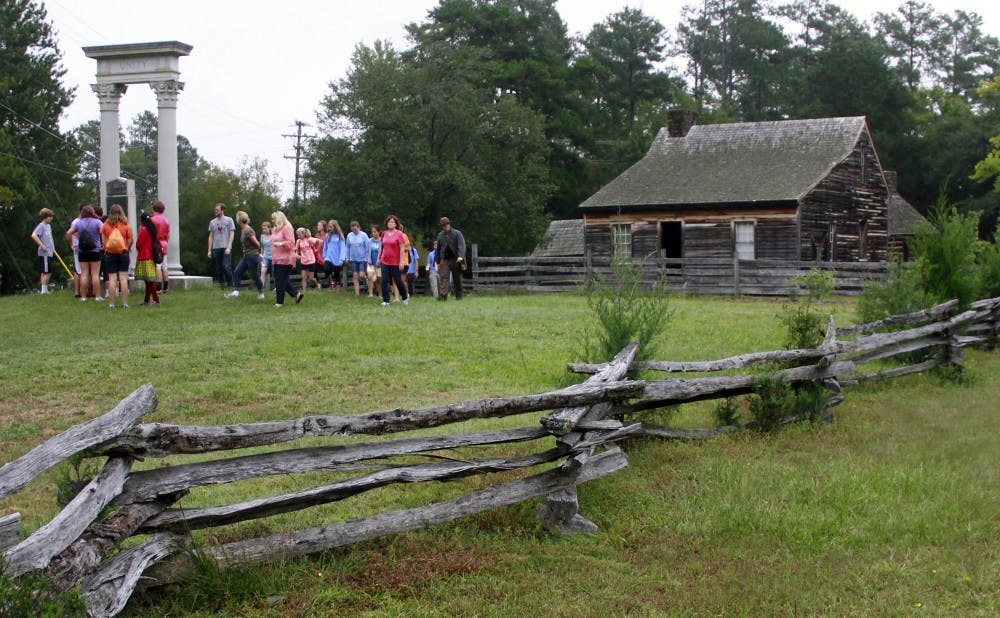In order to preserve a historic Durham Civil War site, the North Carolina Department of Cultural Resources is trying to raise hundreds of thousands of dollars by the end of the month.
Located approximately three miles from campus, Bennett Place played a vital role in the resolution of the Civil War. With the area around the site growing increasingly developed, the state of North Carolina is looking to purchase the land in order to preserve it—but funding is insufficient, and a public campaign has been started to raise $310,000 by Oct. 31. The possible development of the small stretch of land is a significant problem for Durham history, said Diane Smith, who works as a historic interpreter at the site.
“I hate to see [development] getting so close to us that we’re surrounded by all this modern industry,” Smith said.
The two-acre, forested property played a significant role in the surrender that ended the Civil War. Confederate General Joseph Johnson and his troops used the road running through the site to meet the army of Union General William Sherman in April 1865, leading to the surrender of the Confederacy.
The state currently maintains the farmhouse where the two generals met, now called Bennett State Historic Site. Officials from the North Carolina Department of Cultural Resources have said the surrounding land—part of the original farm—would be a valuable addition to the existing landmark. Smith noted that excavation of the property could reveal more insights about the lives of the property owners, as well as the movements of the armies.
“If there are any artifacts over there, it would give us a little bit more of a window into that past. That’s the exciting part about it for me,” Smith said.
Despite the department’s interest in acquiring the land, it has been unable to meet the price quoted by the current owners, Bennett Place Business Park LLC. The state originally intended to purchase the site using a grant from The Civil War Trust—an organization dedicated to the preservation of Civil War battlefields—but failed to secure the money.
The property's current owners extended the deadline for the state's purchase by one month, from the end of September to the end of October. If the sale does not progress in that period, the land may instead become available for development—a source of concern for Smith.
“If you have a little bit of a backdrop of some trees, it sort of helps give the visitor the idea that they’re in this little bubble [so] that they can transport themselves back into the original time period,” Smith said.
The urgency of the timeline prompted the state to launch a public campaign asking citizens to raise the necessary funds. Since the situation was made public, Smith said, the historical site has received several donations from concerned citizens.
The Bennett Place site was briefly owned by the Duke family in the 1890s, and its proximity to campus has ensured a connection to the University throughout the years—including trips by courses and campus groups.
Freshman Yifan Song visited Bennett Place Historic Park through a professor outing during Orientation Week, and said he believes the farmhouse and its adjacent lands should be preserved.
“The best way to learn history is to visit the places where it happened," Song said. "The preservation of Bennett Place is crucial to the education of children and adults alike. Visiting Bennett Place, I could almost see the silhouettes of weary soldiers wobbling up the land behind General Johnson astride his horse, ready to accept General Sherman’s terms of surrender.”
Get The Chronicle straight to your inbox
Signup for our weekly newsletter. Cancel at any time.

